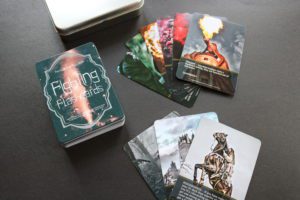As a teenager, I never could have imagined that I would one day learn Mandarin to an intermediate level and use it in my every day life. My path to becoming interested and successful with languages got off to a rocky start in high school, and then entered a series of twists and turns wherein, luckily, I stacked some minor wins. Now, I’m in the flow and loving it. And not only that, I’ve even started a business around language learning to share my unique ideas and products with others.
So how did I get here? I want to go back and revisit the pivotal moments where there was something of a paradigm shift for me. Maybe you can spot some parallels with your own journey that will reassure you that you’re on the right track, or snag some ideas I stumbled into on my journey on give them a try!
#1 – Choose Your Language With Intentionality
Studying a language because you have to or because you think you should isn’t the best way to get started. In fact, it could internally rot your efforts and your conception of yourself as a language learner. I want to go out on a limb here, perhaps, and say something controversial: as far as possible, choose your next target language because you’re attracted to it, because you love it, and because you’re truly interested in it. But do also temper that enthusiasm with some reflection on whether your interest in the language will be deep enough to sustain your practice over time or is just an infatuation that is “here today, gone tomorrow.”
#2 – Establish Some Real Necessity
I recommend you either move to an environment where you will be forced (in a good way!) to use the language often or else build one around yourself. Learning a language without ever having to apply it can work for some people, but not many I reckon. And for those few, it is more like an academic exercise that exists mostly to stimulate their minds. Know which kind of person you are, I guess, and what is motivating you. If you’re just doing this for the intellectual stimulation it gives you, that’s great, but if you really want to develop practical facility with the language in daily life and be able to do things with it in the outside world, establishing an authentic context within which you must apply your language is a must.
One of the surefire methods I use to help my coaching clients get results is to be their accountability partner and make sure they’re sticking to their habits and goals. In that way, I’m helping to add the factor of necessity to their endeavor.
#3 – Boldly Study In Your Own Way
Out there in the online language learning forums and social media, the idea that there is a best way to learn X language is prevalent and overblown. Too many people are smitten with the self-satisfaction that they have adhered to the “right way” or the “best way.” They act as if they have earned bragging rights over us or else the right to tell us how we should learn.
For me, the typical, standardized, or recommended approaches to language learning that were often advocated by teachers and leaders in the field, rarely worked out. That was probably because I didn’t find them interesting or relevant to me. They were too generic and too one-size-fits-all. And, furthermore, I didn’t want to learn like other people were anyway. I didn’t like the feeling that I would end up as just a copy. I think I always intuitively understood that language learning is at its root a creative process, and we shouldn’t try to whittle it down into so-called “best practices”, but rather, we should jump in and swim in it, immerse ourselves in it, and become more of ourselves through it.
When you are creatively immersed in the process of language learning I believe your achievements will simultaneously be fantastic, but also hard (if not impossible) to quantify according to the metrics of the language learning elites. So be it.
#4 – Develop And Share Your Own Approach
Riffing on the last idea for just a minute more, when you do choose to learn in your own way, you inevitably will come across something that really works well for you, maybe you will even come up with a special idea, approach, or product for language learning. At this juncture, I urge you to share what you’ve discovered with the world. You might have happened into something that could be of immense benefit to others.
Maybe you can even be more proactive and intentional about this process of discovery and sharing than I was when I merely had an epiphany that I wanted to start Language Card Games company, and actually build some reflection time into your practice every month or so, wherein you can brainstorm about the novel language learning tactics you have used and want to try going forward.
#5 – Play Games
Games are alternately overrated or passed over. Rarely do people meditate on the myriad and subtle ways they truly ensure our organic growth. Again, this maybe because it is one of those things that is hard to quantify. I wrote about value of games in my blog article Advantages Of Physical Card Games, Board Games, And Tabletop Games. But by way of summary, games can provide us with opportunities for evolving our social skills, digital detoxing, tactile sensation, art appreciation and collection, and innovation.
Personally, I found that by crafting my own games, I remained interested to learn new things about my target language day in and day out… and even when I thought I was too tired to study. What’s more, games brought me into contact with people from diverse backgrounds and fostered a relaxing environment where they could feel free to teach me and learn from me.
If you’re wondering where to get started with language learning games, look no further than Language Guardians. It is available in a PDF print-and-play version, which can be immediately downloaded, printed, cut out, and played with, or, a physical version, which ships for free to any location worldwide.
In this article, I’ve furnished you with 5 ideas that represent turning points in my language learning journey. Maybe you can use them. But my highest advice to you would be to think about what your own advice would be. The biggest lesson I have learned is that I need to stay true to myself and honor my own path, or explore to the fullest extent my own path. So before you go, I want to ask you: if you had to add a #6 to this blog post, from your perspective, what would it be?
And if you’ve enjoyed this post, share with at least one friend who you think could derive value from it, so that we can send out good language learning vibes like ripples in a pond after the throwing of a stone.

